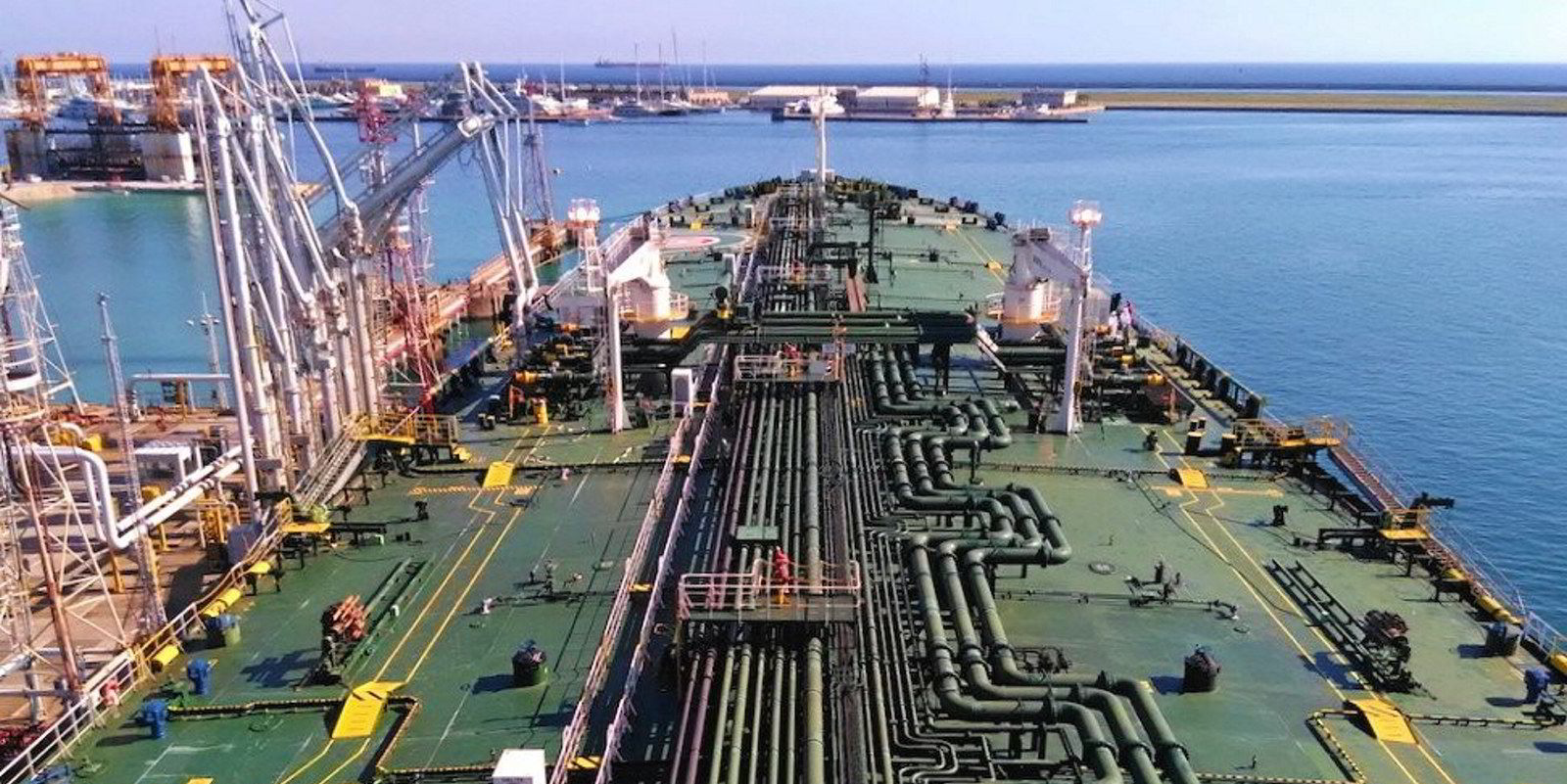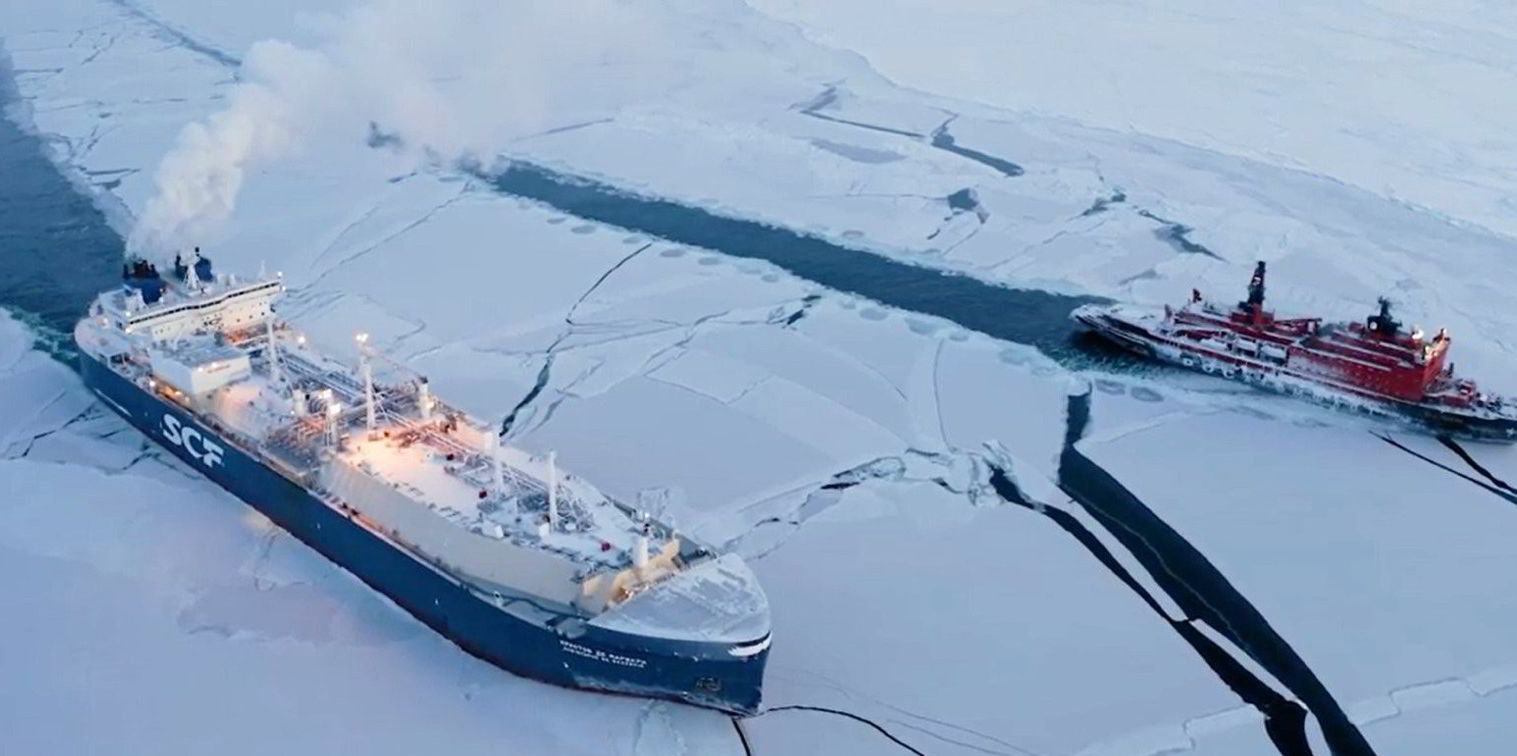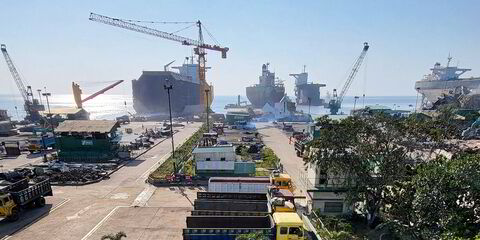Secondhand tanker prices have taken a dip, with BRS Group predicting scrapping will pick up shortly.
The French shipbroker said in its monthly note that tanker sale-and-purchase activity has slowed as demand for older tankers used to lift Russian crude wanes, rates fall, scrap prices rally and emissions regulations loom.
“We expect scrapping to accelerate from 2024 onwards with the survival probability narrowing down post-2026, below the current 24.5-year average scrapping age,” it said.
The broker said there were 400 transactions in the first quarter of the year, but just 36 in July, only 19 of which were vessels larger than 34,000 dwt.
And only seven ships have been scrapped this year, for a total of 300,000 dwt versus 45 vessels and 4.5m dwt for the same period last year. The slowdown puts 2023 on pace for the lowest level of scrapping since 1990 in dwt terms, BRS said.
But it added that the European Union’s emission trading scheme beginning next year and the FuelEU Maritime greenhouse gas intensity reduction targets starting in 2025 would help boost scrapping.
Meanwhile, the scrap value of a 20-year-old aframax has eclipsed 2008 levels, jumping 270% year to date to an average premium of $17m, BRS said.
“While low scrapping figures have been supported by bumper earnings and the extension of the lifetime of older vessels due to high demand for Russian liftings, this trend should soon be maxed out, as the 20-year-old and 15-year-old values over scrap values seem to be finding a ceiling,” the broker said.
Crude tanker rates fell further in July, with the Baltic Exchange’s Baltic Dirty Tanker Index tumbling from 1,014 at the end of June to 851 on Monday.
BRS assessed aframaxes, suezmaxes and VLCCs as down considerably across the board, with all ships on all routes dropping by double digits from June, save VLCCs on a Middle East Gulf-to-China voyage, where rates shot up from an average time charter equivalent of $5,169 per day in June to $32,000 per day in July.
All were below their year-to-date averages, as well.
On the product tanker side, the Baltic Clean Tanker Index jumped from 620 at the end of June to 704 on Monday.
But BRS assessments show the only bright spot was MRs on a cross-Mediterranean voyage, which saw rates leap 85% from an average TCE of $11,380 per day in June to $21,090 per day in July.
The broker said LR1s, LR2s and transatlantic MRs all fell, with LRs dropping 34% month over month.





